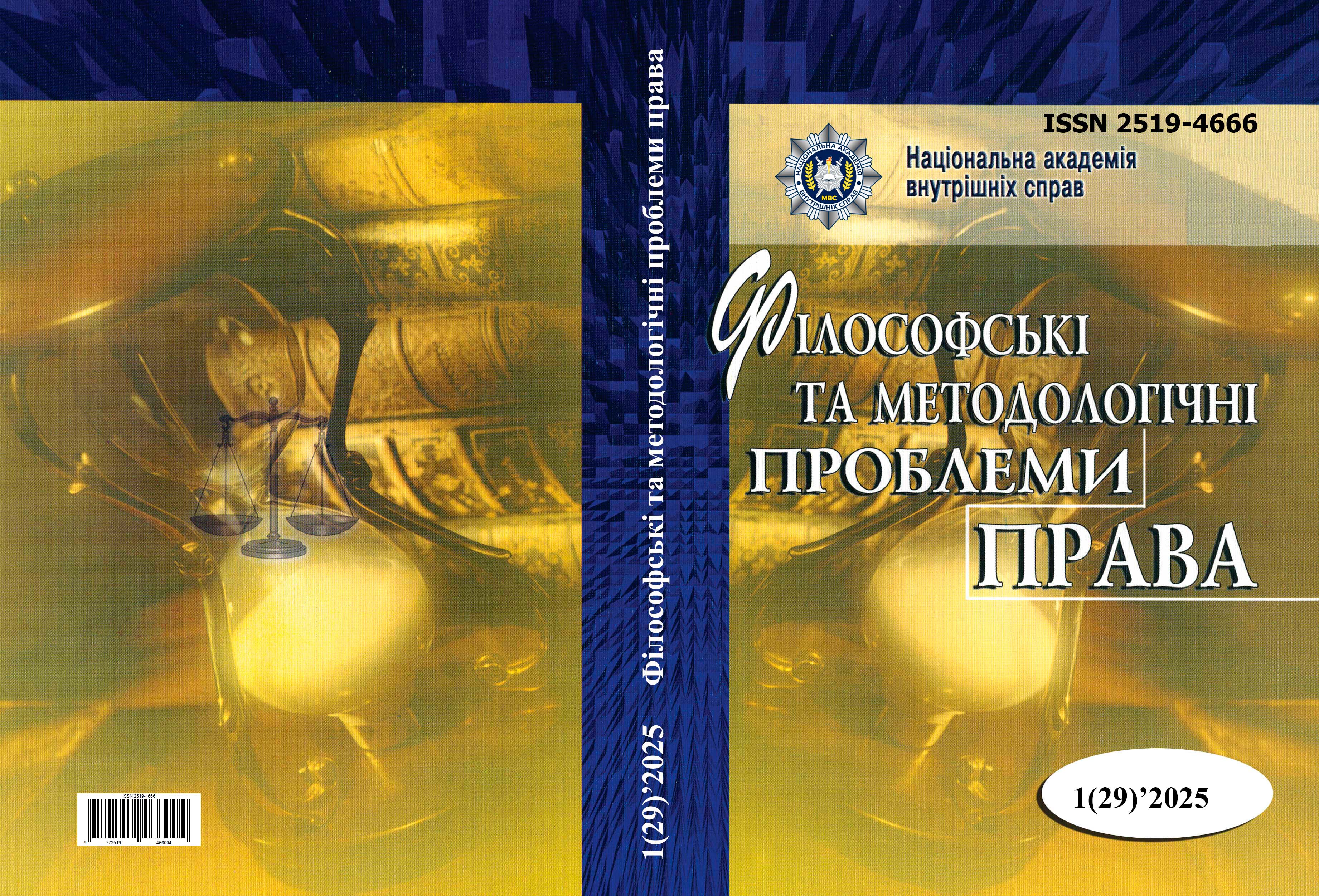Цифрова трансформація та амбідекстерність муніципальної влади: міжнародні тренди та національні особливості
Анотація
Анотація. Стрімкий розвиток інноваційних інформаційно-комунікаційних технологій, що охоплюють широкосмуговий інтернет, 5G і майбутні покоління зв’язку, хмарні обчислення, Big Data, ШІ, IoT, блокчейн та нейрочипи тощо, становить новітню світову цифрову революцію, яка фундаментально змінює спосіб життя, виробництво та комунікацію, роблячи сучасне існування без цих технологій майже неможливим. Безперечно, що муніципальна влада в Україні та зарубіжних країнах не може залишатися поза межами цієї глобальної цифрової трансформації. Адже еволюційний прогрес невпинно інтегрує цифрові технології в усі сфери суспільного життя, встановлюючи нові стандарти ефективності та взаємодії, до яких органи місцевого самоврядування, їх посадові особи повинні адаптуватися для забезпечення якісного надання послуг та сталого розвитку територіальних громад. Дослідження цифрової трансформації та амбідекстерності муніципальної влади визначено необхідністю для місцевих органів влади одночасно оптимізувати поточну діяльність і впроваджувати інноваційні цифрові рішення для ефективного функціонування в умовах глобальних технологічних змін і національних особливостей розвитку. Метою публікації є дослідження цифрової трансформації та амбідекстерності муніципальної влади, взаємозв’язку та синергії цих двох процесів, висвітлення міжнародно-правових основ диджиталізації організації й діяльності органів місцевого самоврядування та національних особливостей реалізації в Україні. Методологія дослідження становить систему теоретичних принципів (історизму, об’єктивності, плюралізму тощо), логічних прийомів (аналіз і синтез, індукція і дедукція, аналогія, гіпотеза тощо) та конкретних засобів дослідження, що дали можливість повноцінно розкрити тему публікації. Наукова новизна полягає в тому, що в публікації вдосконалено науково-теоретичне уявлення про актуальні тенденції та перспективи цифрової модернізації й амбідекстерності муніципальної влади. Результати дослідження містять аналіз міжнародно-правових стандартів (універсальні, наднаціональні, регіональні) цифрової трансформації та амбідекстерності муніципальної влади. Констатовано, що рівень цифрової трансформації муніципальної влади в Україні недостатній, передусім з огляду на необхідність адаптації до правової системи ЄС (acquis communautaire) щодо регламентування та використання сучасних інформаційно-комунікаційних технологій. Практична значущість полягає у висвітленні, що цифрова трансформація надає муніципальній владі нові інструменти та можливості, а амбідекстерність визначає здатність плідно їх використовувати для одночасного підвищення ефективності й стимулювання інновацій в інтересах територіальної громади та її сталого розвитку.
Ключові слова: муніципальна влада; цифрова трансформація; цифрова амбідекстерність; муніципальне право; європейське муніципальне право; міжнародно-правові стандарти; адаптація до acquis communautaire.
Завантаження
Посилання
Alkaabi, S., Hazzam, J., Wilkins, S., & Dan, S. (2024). The Influences of Ambidexterity, New Public Management and Innovation on the Public Service Quality of Government Organizations. Public Performance & Management Review, 47(5), 1110-1137. DOI: 10.1080/15309576.2024.2367130
Digital transformation of communities: tools and solutions. Retrieved from https://hromady.org/cifrova-transformaciya-gromad-instrumenti-ta-rishennya/
Google CEO Sundar Pichai at Paris AI summit: "We're still in the early days of AI … and yet…". (2025). Site "TIMES OF INDIA". Retrieved from https://timesofindia.indiatimes.com/technology/tech-news/google-ceo-sundar-pichai-at-paris-ai-summit-were-still-in-the-early-days-of-ai-and-yet/articleshow/118134007.cms
Hinings, B., Gegenhuber, T., & Greenwood, R. (2018). Digital Innovation and Transformation: An Institutional Perspective. Journal of Organizational Change Management, 31(1), 32-43. DOI: 10.1016/j.infoandorg.2018.02.004
Hoessler, S., & Carbon, C.C. (2022). Digital Transformation and Ambidexterity: A Literature Review on Exploration and Exploitation Activities in Companies Digital Transformation. International Journal of Innovation Management, World Scientific Publishing Co. Pte. Ltd, 26(08), 1-54. DOI: 10.1142/S1363919622300033
Hrytsenko, H. (2024). Digitalization of social services: problems of opportunities and competence. Current problems of law: theory and practice, 1(47), 36-48. DOI: 10.33216/2218-5461/2024-47-1-36-48
Jianxin, Zhao, & Pengbin, Gao. (2024). Configurations of Ambidextrous Innovation and Its Performance Implication in the Context of Digital Transformation. Systems, 12(2), 60-87. DOI: 10.3390/SYSTEMS12020060
Koryzis, D., Dalas, A., Spiliotopoulos, D., & Fitsilis, F. (2021). Transformation Framework for the Digital Parliament. Big Data Cogn. Comput, 5(1). DOI: .3390/bdcc5010015
Malyi, I.I., & Tsedik, M.H. (2022). Institutional dimension of digitalization of public administration in Ukraine. Public administration: improvement and development, 2, 78-97. DOI: 10.32702/2307-2156-2022.2.3
Nambisan, S., Lyytinen, K., Majchrzak, A., & Song, M. (2017). Digital Innovation Management: Reinventing Innovation Management Research in a Digital World. MIS Quarterly, 41(1), 223-238. DOI: 10.25300/MISQ/2017/41:1.03
Oluwafemi, T.B., Mitchelmore, S., & Nikolopoulos, K. (2020). Leading innovation: Empirical evidence for ambidextrous leadership from UK high-tech SMEs. Journal of Business Research, 119, 195-208. DOI: 10.1016/j.jbusres.2019.10.035
Ozturk, I. Google CEO Predicts Near Future for Artificial Intelligence. Retrieved from https://glavcom.ua/techno/devices/ochilnik-google-peeredbachiv-najblizhche-majbutnje-dlja-shtuchnoho-intelektu-1044597.html
Piccinini, E., Hanelt, A., Gregory, R., & Kolbe, L. (2015). Transforming Industrial Business: The Impact of Digital Transformation on Automotive Organizations. In Proceedings of the International Conference on Information Systems (13-16 December 2015). Fort Worth, TX, USA. Retrieved from https://www.researchgate.net/publication/281855658_Transforming_Industrial_Business_The_Impact_of_Digital_Transformation_on_Automotive_Organizations
Ponomarenko, D. Elon Musk predicted when artificial intelligence will surpass human intelligence. Retrieved from https://www.unian.ua/techno/neiroseti/ilon-mask-sprognozuvav-koli-shtuchniy-intelekt-perevershit-lyudskiy-12862131.html
Resolution adopted by the General Assembly. A/RES/70/1 - Transforming our world: the 2030 Agenda for Sustainable Development. (2015). Retrieved from https://undocs.org/en/A/RES/70/1
Smith, E., & Umans, T. (2015). Organizational Ambidexterity at the Local Government Level: The effects of managerial focus. Public Management Review, Taylor & Francis Journals, 17(6), 812-833. DOI: 10.1080/14719037.2013.849292
Stelzl, K., Röglinger, M., & Wyrtki, K. (2020). Building an ambidextrous organization: a maturity model for organizational ambidexterity. Business Research, 13, 1203-1230. DOI: 10.1007/S40685-020-00117-X
Transforming our world: the 2030 Agenda for Sustainable Development. (n.d.). Retrieved from https://www.un.org/sustainabledevelopment/sustainable-development-goals/
Vial, G.A. (2019). Understanding Digital Transformation: A Review and a Research Agenda. Journal of Management Information Systems, 36(1), 118-147. DOI: 10.1080/07421222.2019.1581317
White Paper on AI Regulation in Ukraine: Vision of the Ministry of Digital. (n.d.). Retrieved from https://thedigital.gov.ua/storage/uploads/files/page/community/docs/%D0%A0%D0%B5%D0%B3%D1%83%D0%BB%D1%8E%D0%B2%D0%B0%D0%BD%D0%BD%D1%8F%20%D0%A8%D0%86.pdf
Переглядів анотації: 122 Завантажень PDF: 133
Авторське право (c) 2025 Філософські та методологічні проблеми права

Ця робота ліцензується відповідно до Creative Commons Attribution-NonCommercial-NoDerivatives 4.0 International License.
- Автори залишають за собою право на авторство власної праці та передають журналу право першої публікації цієї роботи на умовах ліцензії Creative Commons Attribution License, яка дає змогу іншим особам вільно розповсюджувати опубліковану працю з обов’язковим посиланням на авторів оригінальної роботи та першу публікацію статті в цьому журналі.
- Автори мають право укладати самостійні додаткові угоди щодо неексклюзивного розповсюдження роботи у тому вигляді, в якому вона була опублікована в журналі (наприклад, розміщувати статтю в репозитарії установи або публікувати у складі монографії), за умови збереження посилання на першу публікацію роботи у цьому журналі.
- Політика журналу дає змогу і заохочує розміщення авторами в Інтернеті (наприклад, у електронних сховищах установ або на особистих веб-сайтах) рукопису статті як до подання цього рукопису до редакції, так і під час його редакційного опрацювання, оскільки це сприяє продуктивній науковій дискусії та позитивно впливає на оперативність та динаміку цитування опублікованої роботи.




